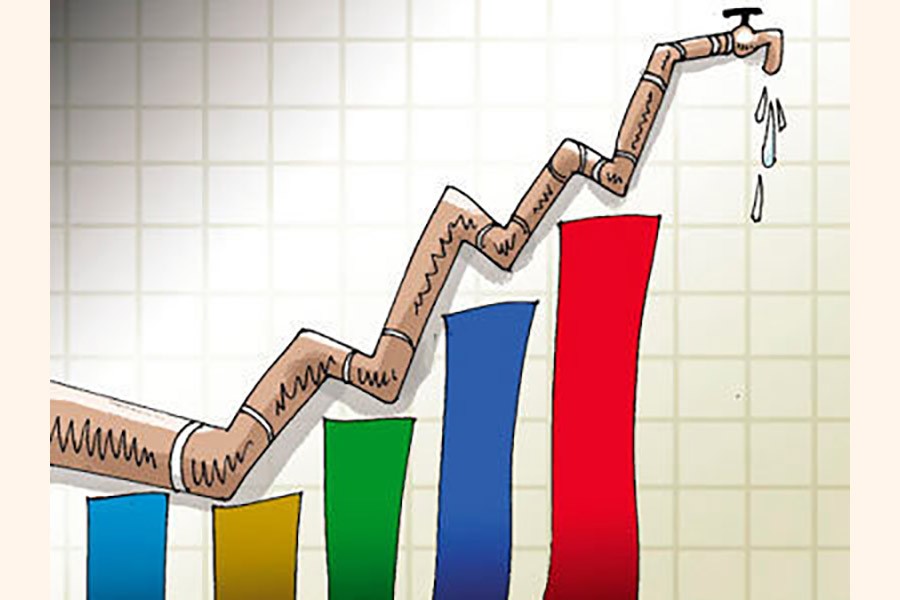The Dhaka Water and Sewerage Authority (DWASA) is set to make its annual ritual -- a hike in water tariff. This time the increase will be at the rate of 5.0 per cent, equivalent to that of 2017.
However, the managing director of the WASA is not willing to describe the tariff-increase as 'hike'. "It is rather an annual adjustment with the rate of inflation", he told the waiting newsmen at the end of a meeting that discussed the issue of water rates.
To millions of consumers, it matters little how the DWASA boss prefers to describe the proposed tariff change. What is important to them is the extra amount that they will have to count for consuming the piped water at the end of every month, starting from July next.
However, the reason behind the DWASA managing directors' preference to describe the tariff hike as 'adjustment' is quite understandable. He does intend to take the legal cover.
One sub-clause of the DWASA Act-1996 allows the water supply authority to adjust its water tariff annually with the rate of inflation. However, the WASA people, deliberately, avoid the mention of another sub-clause that allows them to hike water tariff once in five years. These sub-clauses are conflicting in nature. Yet none has cared until now to right the wrong.
Between 2009 and 2017, the DWSA more than doubled its water tariff. In 2016 alone, it had got the tariff hiked by 22 per cent, in violation of the DWASA Act.
The agency does enjoy a couple of advantages. The first one is that it does not have to go through public hearing, arranged by a regulatory body, on proposals for hike of water tariff or the like. The second advantage is that it is fortunate to have a very indulgent controlling ministry, the ministry of local government, rural development and cooperatives. The ministry does demonstrate a propensity to give the 'go-ahead' signal whenever the DWASA comes up with a proposal for water tariff hike.
If the proposed hike at the rate of 5.0 per cent is given effect from the first day of July, the water rate for the domestic consumers would be around Tk12.70 per 1,000 litres (inclusive of 15 per cent value added tax).
The DWASA claims that water tariff even after the proposed hike would be well below the cost of production --Tk 17 per unit.
However, one has reasons to be sceptical about the cost of production since it, obviously, includes the revenue that DWSA loses due to widespread pilferage of water in connivance with the agency's field-level employees.
A substantial cut in wastage and pilferage of water would have helped the agency cut the cost of production and, thus, provide some relief to consumers, in terms of water tariff.


